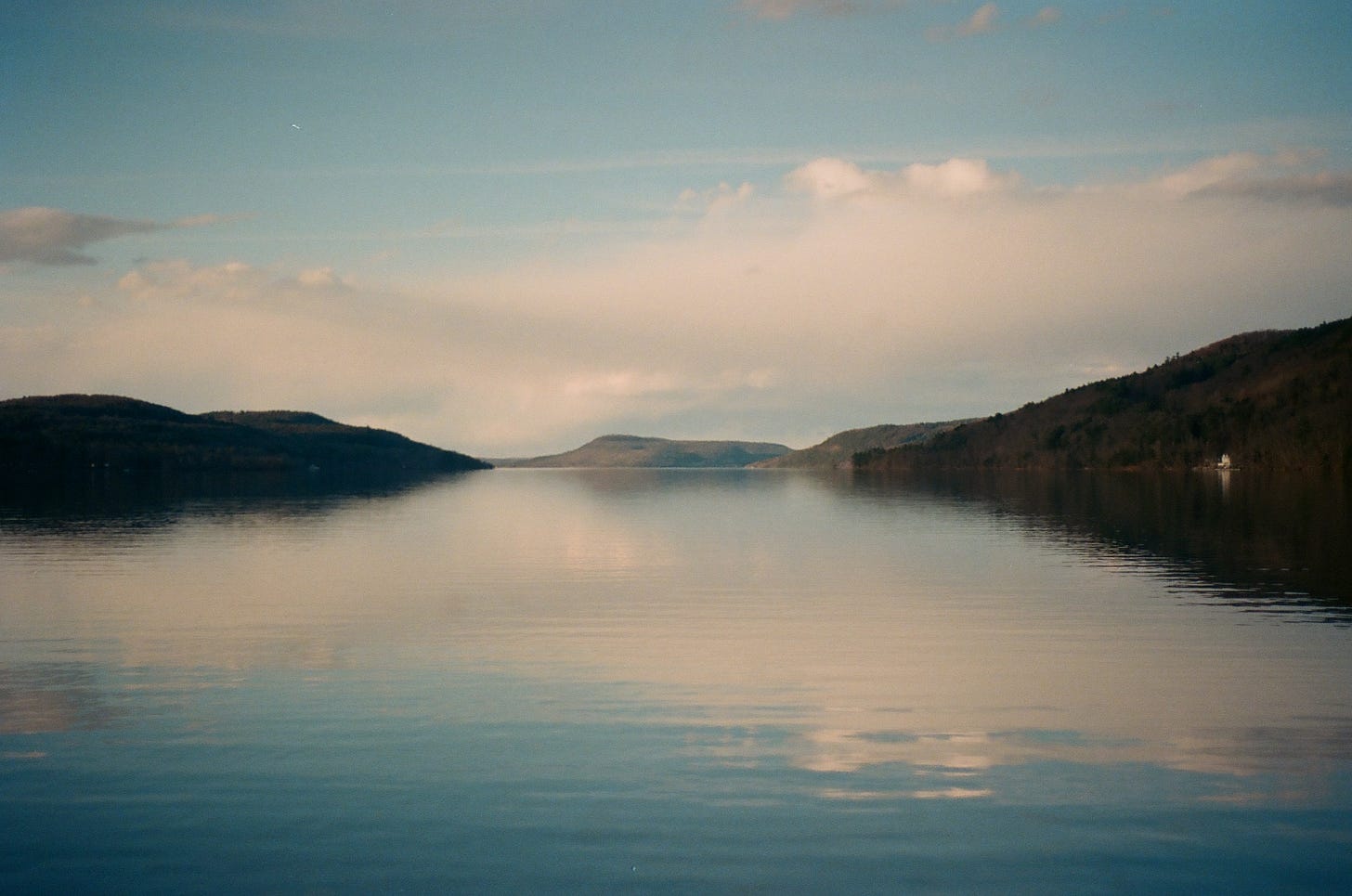Last summer there was a toxic algae bloom on the lake. At first, it was isolated to certain sections of the long, narrow swath of water that cuts through two wooded hills in our small town. Kids were still swimming, with strict warnings not to get water in their mouths. Parents whispered the word “neurotoxin” to each other. As summer went on, and the rain didn’t fall, the algae spread. The public beach closed. The tour boats stopped departing. Lakefront residents were advised to keep their windows closed on breezy days.
The lake took on a mythic quality—one part foreboding, one part alluring. Even as I rolled up the car windows while driving alongside it, I longed to step into the cold water, to dunk my sun-hot scalp beneath the surface.
The lake I live near now, in upstate New York, has nearly zero resemblance to the lake I grew up near in upstate South Carolina. The largest lake in the Southeast, it seemed vast and unknowable as a child, which made it all the more magical that my dad could seemingly navigate it with his eyes closed. As we drove around in his maroon fishing boat, we’d hear stories like the one about the town that lies at the bottom of the lake. It was flooded when the Army Corps of Engineers built a hydroelectric dam to protect the towns further down the Savannah River. My dad told us that, if the water is low enough, and you find just the right spot, you could swim to the bottom and push off an old roof with your feet.
Or the abandoned train trestle that spanned a narrow part of the lake where the water was deep and black. As we glided quietly underneath a structure taller than anything else in our strip mall town, the boat engine barely running, my mom would tell us how my teenage dad and his friends would cut school and spend the afternoon leaping from it. They wore sneakers and prayed to God to enter the water feet first.
There was the spot, near the dilapidated family dock where, in an effort to give my 11-year-old best friend an exhilarating inner tube ride, my dad accidentally slung her into a tall orange and white buoy. I can still picture the way her body wrapped around the barrel before dropping beneath the water. She was OK, and wearing a life jacket, but the moment between impact and her surfacing was one of the great silences of my life.
The lake I live near now holds no significant personal stories for me yet. This is not the place where I once felt an old dock’s algae-slick wooden ladder beneath my feet, or threw handfuls of dog food onto the writhing bodies of the “pet” catfish at the local marina. But it draws me in, nonetheless. The depths, the shifting color, the immense stillness of its frozen surface in winter. It is not a place of personal narrative, but a place of imagination and, after a summer spent without it, currently a place of deep longing.
On these early spring days. It is not yet inviting—the buds on the trees are only just unfurling into leaves, and the light has the cool tint of winter, still, but I’m watching. I’ll be the first one in.







Holly-you made the lakes come alive for me. I could see, feel and smell them through the stories you shared with us. Wonderful memories are the heart holders of our intrinsic beingness.